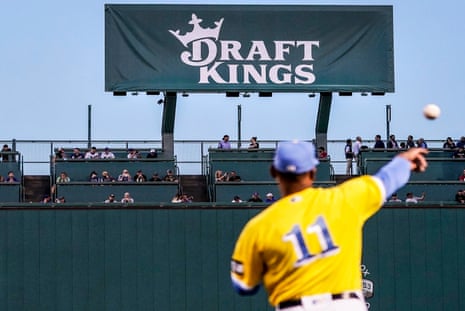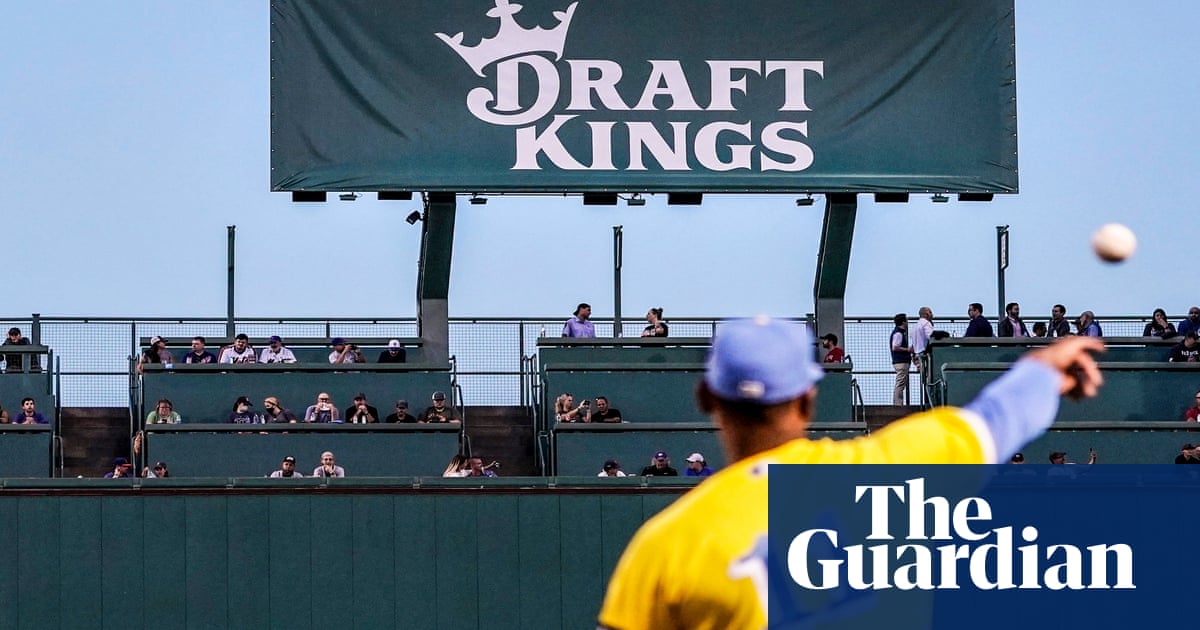
‘Out of control’: Congresswoman sounds alarm over ‘unchecked’ gambling boom
Andrea Salinas warns of ‘upstream problem’ in US mental health crisis and proposes tax revenue be used for treatment
America’s “unchecked” gambling boom risks exacerbating a nationwide mental health crisis, according to a congresswoman pushing for federal government support. The industry is pushing back hard.
Operators must be held “accountable” for rising addiction rates, Andrea Salinas told the Guardian, after lawmakers proposed legislation that – if approved – would provide tens of millions of dollars in funding to help those affected.
Sports betting is “proliferating like never before”, she said. “Rather than try to put the genie back in the bottle, let’s make sure we have the research and the treatment before it does become out of control.”
The supreme court struck down a decades-old law in 2018 that had banned sports betting across much of the nation. The market is now legal in 38 states, attracting billions of dollars in wagers every month. Its rapid growth has coincided with a spike in addiction cases, according to clinicians, counsellors and campaigners.
Diverting taxes already raised on sports wagers towards compulsive gambling support services would make “the entire industry healthier”, said Salinas, a Democrat representing Oregon’s sixth district. “I, as much as anybody, enjoy the recreation of gambling, in a fun casino. When done, like everything, in moderation, it’s fun, right?
“But the access to these applications for sports betting has taken us in a direction that is harmful. Nearly 7 million Americans are struggling with the gambling addiction.”
The Grit (Gambling addiction Recovery, Investment and Treatment) Act, proposed this month by Salinas and the Democratic senator Richard Blumenthal, is pinned around the federal sports excise tax. Receipts from the tax, which dates back to the early 1950s, have surged in recent years as the legal market expanded; it raised an estimated $271m last year.
Under the proposed law, half of the revenues raised by the tax would be set aside for gambling addiction treatment, prevention and research. Taxes would not rise and the funds for treatment would go through an existing federal grant program.
Researchers have identified close links between gambling addiction and other mental health disorders, like alcoholism. “If we let this go unchecked, this could be one of the sources” of an escalating mental health crisis, said Salinas. “We would be ignoring an upstream problem that we could start to address.”
Keith Whyte, executive director of the National Council on Problem Gambling, which has been pushing for the Grit Act, has said it would “significantly bolster” addiction prevention, research and treatment resources.
after newsletter promotion
But gambling operators are against the proposal. “Our industry’s growth means that there’s never been more attention paid to, or money invested in, problem gambling support than there is today,” Chris Cylke, senior vice-president at the American Gaming Association, said.
Suggesting the Grit Act would “give criminals a leg up”, Cylke argued that the excise tax – upon which it is based – should be repealed. “Today, this antiquated policy puts the nascent legal market at a competitive disadvantage against offshore illegal operators, who do not pay any taxes and prey on vulnerable customers.”
Advocates for greater compulsive gambling support criticised the “predictable, shortsighted objection” of operators. “The gambling sector can no longer reasonably expect to evade external responsibility,” said Derek Webb, founder of the Campaign for Fairer Gambling. “The Grit Act is our best chance to save lots of lives by doing what’s responsible, fair and inevitable.”
But Salinas is braced for a long campaign to pass the Grit Act. Politicians in Washington and beyond “aren’t really paying attention” to gambling addiction rates, she said. Congress is “not doing a lot of substantive work right now. So, yeah, it could take a while.”
